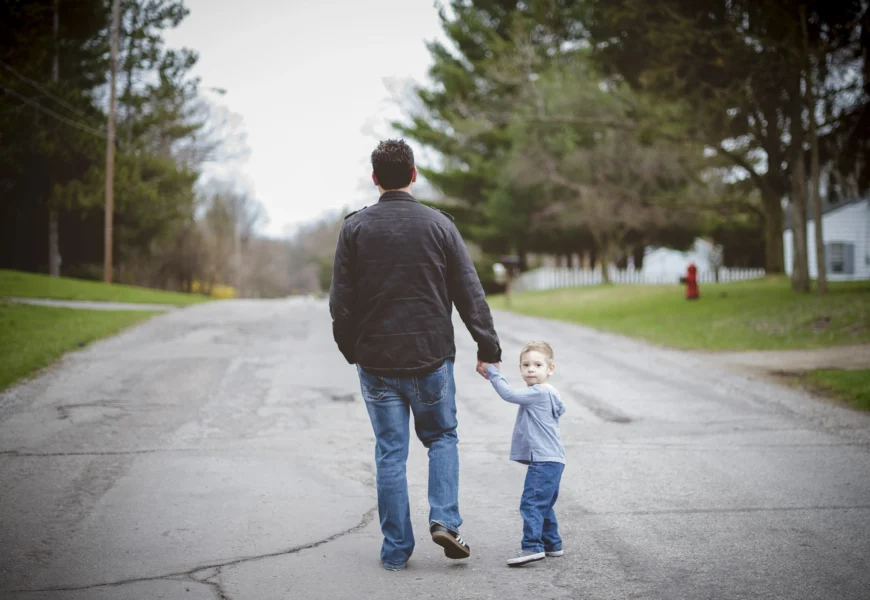Understanding Childhood Trauma
Childhood trauma is a complex and multi-faceted issue that can manifest in various forms, including physical, emotional, and sexual abuse, neglect, or exposure to domestic violence. Each individual may experience trauma differently, leading to a wide range of emotional and psychological ramifications that extend into adulthood. Trauma refers to the emotional response to distressing events that overwhelm a child’s ability to cope. It is essential to recognize that the impact of childhood trauma is not uniform; some children may exhibit resilience, while others may struggle significantly as they grow older.
The prevalence of childhood trauma is alarming, with studies indicating that a substantial percentage of children experience at least one traumatic event before reaching adulthood. This widespread occurrence highlights the importance of recognizing and addressing the issue early on, as the long-term effects can be profound. Individuals who have experienced childhood trauma may find it challenging to form healthy relationships in later life. They may struggle with trust issues, fear of abandonment, or difficulty in expressing emotions, all of which can hinder their ability to connect with others.
The impacts of childhood trauma can be pervasive, often leading to mental health challenges such as anxiety, depression, and post-traumatic stress disorder (PTSD). Moreover, it can influence one’s attachment style and perceptions of relationships, contributing to maladaptive patterns in interpersonal dynamics. Understanding one’s own trauma is a crucial step in the healing process, as it enables individuals to identify and unpack their experiences, leading to a better understanding of their responses in various relational contexts. Engaging with therapeutic practices, such as counseling or support groups, can foster self-awareness and promote healthier relationships as individuals seek to navigate the complexities associated with their histories.
Identifying the Signs of Trauma in Adult Relationships
Childhood trauma can leave deep-seated scars that significantly affect adult relationships. It is critical to recognize the manifestations of this trauma, as they can often disrupt the healthy dynamics we strive to cultivate. One of the most common behaviors associated with unresolved childhood trauma is avoidance. Individuals may utilize avoidance as a defense mechanism, steering clear of intimacy or vulnerable situations due to the fear of being hurt or rejected. This can manifest in patterns of emotional detachment or reluctance to fully engage in relationships, which hampers the development of closeness and trust.
Mistrust is another prevalent sign that may indicate past trauma. Those who have experienced childhood trauma often struggle to trust others, believing that they will inevitably face betrayal or emotional harm. This lack of trust can create barriers, not only preventing individuals from forming healthy connections but also causing unintended friction in existing relationships. For example, a partner may frequently question the other’s intentions or express suspicion, eroding the foundation of trust that is essential for a thriving relationship.
Codependency is also a behavior frequently observed in those shaped by childhood trauma. Individuals may find themselves overly reliant on their partners for emotional validation, often leading to an unhealthy imbalance. This dynamic fosters a cycle of dependency, where one person feels the need to constantly appease the other, while the other may feel overwhelmed by the expectations placed upon them. Identifying these signs is crucial for breaking the cycle of trauma. Individuals are encouraged to engage in self-reflection, tuning into their feelings and reactions to understand how these behaviors may stem from their past experiences. Recognizing the impact of childhood trauma on relationships is the first step toward healing and fostering healthier connections moving forward.
The Impact of Past Trauma on Emotional Regulation
Childhood trauma can profoundly affect an individual’s emotional regulation, the processes that govern how we manage and respond to our emotions. When a child experiences significant distress or emotional pain, whether through neglect, abuse, or other adverse experiences, the brain and body adapt in ways that can lead to long-term challenges. The impact of childhood trauma on relationships extends beyond mere emotional turmoil; it can disrupt the development of healthy coping mechanisms, leading to heightened anxiety, uncontrollable anger, or emotional withdrawal in adulthood.
Physiologically, trauma can alter the brain’s structure and function, particularly areas such as the amygdala, which is critical for processing emotions. This alteration results in heightened sensitivity to stress and emotional stimuli, often manifesting as disproportionate emotional reactions. Individuals who have faced early trauma may find themselves struggling with overwhelming feelings of anger or sadness in situations that others might deem minor. Such reactions can create a barrier in relationships, making it difficult to communicate openly or trust others.
Psychologically, childhood trauma can lead to ingrained beliefs and narratives that shape how individuals perceive their worth and relationships. For instance, a person might internalize feelings of unworthiness, leading to fear of rejection or abandonment. As they navigate adult relationships, these underlying beliefs can surface as anxiety or avoidance, reinforcing difficulties in forming secure attachments.
To improve emotional regulation and combat the negative effects of childhood trauma, several strategies may be helpful. Mindfulness practices can enhance awareness of emotional triggers, allowing individuals to pause before responding emotionally. Additionally, cognitive-behavioral approaches can help in reshaping unhelpful thought patterns related to emotional responses. Building resilience through supportive relationships and professional counseling can further aid in restoring a balanced emotional state, ultimately leading to healthier relationships in adulthood.
The Role of Therapy in Healing from Childhood Trauma
Therapy plays a crucial role in addressing the complex impacts of childhood trauma on relationships in adulthood. Professional help offers a safe space for individuals to process their experiences, understand their emotions, and develop healthier relational patterns. Various therapeutic approaches can be utilized to effectively confront and heal from childhood trauma, each bringing unique methodologies and benefits.
One commonly favored method is Cognitive Behavioral Therapy (CBT), which focuses on identifying and altering negative thought patterns that stem from traumatic experiences. This approach is effective in transforming maladaptive beliefs into healthier perspectives, helping individuals recognize how these beliefs influence their relationships. By learning to replace negative thought patterns with more constructive ones, individuals can foster improved communication and emotional intimacy in their relationships.
Another impactful therapeutic strategy is Eye Movement Desensitization and Reprocessing (EMDR). This approach helps individuals process distressing memories associated with childhood trauma by using guided eye movements. As clients reprocess these memories, they often experience a reduction in emotional distress, enabling them to form more secure attachments in their adult relationships. EMDR not only aids in alleviating symptoms of trauma but also aids in the development of adaptive coping mechanisms.
Somatic Experiencing is another innovative therapy that focuses on the physiological effects of trauma. This method encourages individuals to reconnect with their bodily sensations, allowing them to release pent-up energy associated with traumatic experiences. By addressing trauma at a somatic level, individuals can gain a deeper understanding of how their past may be influencing their current relationship dynamics.
Each of these therapeutic approaches provides invaluable tools for those navigating the impacts of childhood trauma on relationships. With professional guidance, individuals can embark on a journey of healing, leading to healthier interactions and fulfilling connections in their lives.
Building Healthy Relationship Skills
Developing healthy relationship skills is crucial for individuals seeking to overcome the effects of childhood trauma and forge meaningful connections in adulthood. These skills not only enhance personal interactions but also contribute significantly to emotional well-being. Key components of successful relationships include effective communication, trust-building, and setting appropriate boundaries.
Effective communication serves as the foundation of any healthy relationship. It involves both expressing oneself clearly and actively listening to others. Individuals recovering from childhood trauma may find it challenging to articulate their feelings due to the defense mechanisms developed in response to past experiences. To improve communication, it is important to practice open dialogue and encourage honest exchanges. Using “I” statements can help convey feelings without placing blame on others, fostering a more constructive atmosphere for discussions.
Another vital skill is trust-building, which is particularly important for those affected by childhood trauma, as it can significantly impact their ability to form deep connections. Building trust requires consistency, reliability, and vulnerability. Taking small steps to share personal experiences and allowing others to reciprocate fosters mutual trust over time. Engaging in activities that promote shared experiences can also help solidify trust, creating a stronger bond between individuals.
Lastly, setting healthy boundaries is essential for maintaining respectful and supportive relationships. Individuals must recognize their own needs and communicate them effectively to others. Establishing clear boundaries helps protect emotional well-being and fosters an environment where both parties feel safe. It is important to remember that setting boundaries is not selfish; rather, it is an integral part of nurturing healthy relationships.
In conclusion, cultivating these skills—communication, trust-building, and boundary setting—is vital for overcoming the lingering effects of childhood trauma on relationships. With consistent practice and self-awareness, individuals can create and maintain fulfilling connections that enhance their overall quality of life.
Forgiveness and Letting Go: A Path to Healing
Forgiveness plays a crucial role in the journey of healing from childhood trauma and relationships shaped by these early experiences. The emotional ramifications of trauma can lead individuals to harbor resentment, bitterness, or even anger toward those who caused their pain. However, embracing forgiveness offers a powerful opportunity for emotional liberation and personal growth. It is essential to understand that forgiveness is not about condoning the actions of those who hurt us; instead, it is a conscious decision to release the grip of negative emotions that can hinder one’s growth.
A key psychological benefit of forgiveness is its potential to enhance emotional well-being. Various studies have shown that forgiving those who have inflicted harm can reduce stress, anxiety, and feelings of depression. When individuals choose to let go of grudges and resentments, they often experience a significant reduction in emotional pain. This is particularly relevant for individuals grappling with the impacts of childhood trauma, as unresolved emotional wounds can significantly affect current relationships and overall quality of life.
Practical exercises can facilitate the process of forgiveness and letting go. Journaling is a powerful tool; writing down feelings related to trauma can help individuals to process their emotions more effectively. Additionally, practicing mindfulness and meditation can help ground individuals, allowing them to observe their thoughts without judgment, ultimately fostering a mindset amenable to forgiveness. Another effective exercise is to visualize the person or situation that caused harm and mentally release the associated negativity, perhaps even expressing an intention of goodwill towards them.
Ultimately, it is crucial to recognize that forgiveness is a deeply personal journey. It does not necessitate reconciliation with the offender or a return to a previous relationship dynamic. Each individual must navigate this path uniquely, determined by their feelings and insights gained from their own experiences of childhood trauma and relationships.
The Importance of Self-Care in Recovery
Healing from childhood trauma is a multifaceted process that requires a strong emphasis on self-care. Engaging in self-care practices is vital to rebuilding emotional health and fostering healthy relationships in adulthood. Individuals who experienced childhood trauma often struggle with self-esteem and emotional regulation, making self-care essential in their recovery journey.
Mindfulness is one self-care strategy that can significantly benefit those healing from trauma. By incorporating mindfulness techniques such as meditation or deep-breathing exercises, individuals can enhance their awareness of their thoughts and feelings. This mindful approach allows for better emotional processing, helping to alleviate anxiety and depressive symptoms commonly associated with unresolved childhood trauma.
Physical exercise is another essential element of self-care that plays a pivotal role in emotional well-being. Engaging in regular physical activity not only promotes endorphin release, which improves mood, but also helps combat the physical tensions and stress that often accompany trauma. Whether it is going for a walk, practicing yoga, or participating in team sports, finding an enjoyable form of exercise can significantly elevate one’s emotional state.
Journaling serves as a powerful tool for reflection and expression, providing an outlet for processing feelings linked to childhood trauma. Writing down thoughts and emotions allows individuals to confront their experiences and articulate their feelings, which can foster healing. Writing can also encourage individuals to track their progress over time, reinforcing the positive changes that result from self-care practices.
Moreover, cultivating hobbies is a vital aspect of self-care that invites joy into daily routines. Engaging in activities such as painting, gardening, or cooking can serve as a constructive distraction. These hobbies not only reduce stress but also establish a sense of accomplishment, thereby contributing to improved self-esteem.
In conclusion, prioritizing self-care is crucial for individuals recovering from childhood trauma. By embracing mindfulness, physical activity, journaling, and hobbies, individuals can enhance their emotional health and build the foundation necessary for healthier relationships in adulthood.
Creating a Supportive Network
Building a robust support system is a crucial element in the journey towards healing from childhood trauma and relationships. A supportive network can include friends, family members, and support groups, all of whom can provide the encouragement and understanding necessary for recovery. Friends can offer a listening ear, family can provide a sense of belonging, and support groups can share common experiences, fostering an atmosphere of empathy. Each role in this network helps to reduce the feelings of isolation often associated with childhood trauma.
To create a supportive network, it is essential first to identify individuals who genuinely care and can empathize with your experiences. Open communication is key; sharing your feelings and experiences with these trusted people can help them understand your challenges better. Furthermore, actively participating in community support groups can facilitate connections with others facing similar issues. These groups often provide a structured environment where individuals can discuss their experiences and gain insights from one another, creating a sense of camaraderie.
However, seeking out and maintaining supportive relationships can come with its own set of challenges. Individuals healing from childhood trauma may have difficulty trusting others or may feel unworthy of support. It is important to address these feelings, as they can hinder the establishment of meaningful connections. Additionally, some friends or family members may not fully comprehend the impacts of childhood trauma on relationships, leading to unintentional misunderstandings. In such cases, educating oneself and, if possible, explaining these dynamics to loved ones can help bridge gaps in understanding.
Ultimately, a strong support network can significantly enhance the healing process from childhood trauma and relationships, facilitating personal growth and resilience. By fostering these connections and engaging openly with others, individuals can embark on a transformative journey toward healthier adult relationships.
Implementing Long-Term Strategies for Continuous Growth
Addressing the lingering effects of childhood trauma and relationships necessitates the establishment of long-term strategies aimed at fostering continuous personal development and emotional healing. One of the most effective approaches in this journey is the commitment to lifelong learning. This not only encompasses formal education but also informal experiences that contribute to self-awareness. Engaging with books, workshops, and therapy can enhance one’s understanding of their emotional landscape, ultimately aiding in the recognition of patterns formed during childhood.
Another critical strategy involves self-reflection, which serves as a powerful tool for healing. Regularly taking time to contemplate personal experiences, thoughts, and feelings can illuminate the connections between past traumas and present behaviors in relationships. Journaling, meditative practices, or even guided discussions with trusted friends or professionals can aid in unpacking complex emotions. This reflection fosters an awareness that is essential for breaking cycles of maladaptive behaviors based on childhood experiences.
Integrating adaptive coping mechanisms also plays a significant role in managing the repercussions of past trauma. These coping strategies promote resilience and enhance interpersonal skills. Techniques such as mindfulness, stress management, and conflict resolution can equip individuals with the tools needed to navigate relationships healthily. By actively choosing adaptive responses instead of reverting to learned maladaptive behaviors, individuals can create a more secure and fulfilling relational environment.
In conclusion, the journey of healing from childhood trauma and relationships is ongoing and requires deliberate effort. By adopting a mindset of lifelong learning, engaging in self-reflection, and employing adaptive coping strategies, individuals can not only foster their growth but also create healthier and more meaningful connections in their adult lives.










